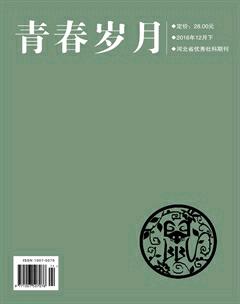An Investigation on Teachers’ Behaviors and Beliefs of Oral Corrective Feedback in Chinese College English Classrooms
Abstract:In China, though there are researches done on corrective feedback, little is done on empirical studies on teachers practice corrective feedback and their beliefs. Meanwhile, English teachers are not aware of the importance of their corrective feedback in classroom teaching. In view of the above reasons, it is of great necessity and significance to investigate College English teacher practice of corrective feedback in classroom and their beliefs. The purpose of the present study is to describe the corrective feedback behaviors in Chinese College English classrooms as well as the relationship with their beliefs, and to arouse teachers awareness of the importance of teacher corrective feedback.
Key words:behavior; belief; corrective feedback; college English
1. Introduction
Since the mid-1990s, “teacher research” has been advocated by many western researchers (TESOL Journal, 1994/4), and classroom instruction has shifted its focus from “language forms to functional language within communicative contexts” (Brown, 2002). As a vital role in second language classroom communication, teacher talk is “of crucial importance, not only for the organization and management of the classroom but also for the processes of acquisition” (Nunan, 1991). One important aspect of teacher talk, corrective feedback, which is to evaluate students performance and correct their errors, has drawn more attention in the field of SLA.
Since then, researchers mainly focus on learners attitude towards corrective feedback, types of errors corrected, studies on corrective feedback types, the relationship between corrective feedback and students uptake. The effectiveness of corrective feedback is the center of teachers corrective feedback research. A considerable number of experimental and classroom studies proved that correcting learners errors in appropriate way has a positive impact on language learning(Mackey, 2007).
2. Literature Review
Definitions of Corrective Feedback:
Providing feedback by teachers in classroom is regarded as a way in motivating learners in classroom interaction and thus in their improvement of language acquisition. Teacher feedback given by Ellis (1994: 583) is adopted: feedback refers to “the information provided by listeners on the reception and comprehension of messages”. With different perspectives,teacher feedback can be classified differently. Positive feedback is usually considered as a positively rewarding statement in response to students performance, or the repetition of the students correct response. While negative feedback refers to teachers correction or repetition of students mistakes. It is used by teachers to negate, criticize, or to correct students answers. Negative feedback is also known as “error treatment” and “corrective feedback”.
Chaudron (1977: 31) defined corrective feedback as “any reaction of the teacher which clearly transforms, disapprovingly refers to, or demands improvement of the learner utterance”.
Lightbown and Spada (1999) gave the definition of corrective feedback as any indication to the learners that their use of the target language is incorrect, which includes various responses that the learners receive.
In this proposal, corrective feedback means various ways employed by teachers in language classroom to indicate to the learners that there is ill-formedness or inappropriateness in their utterances.
3. Methodology
3.1 Research Questions
This research will combine quantitative and qualitative approach together to explore the practice of College English teachers corrective feedback in classroom and their beliefs with reference with the teachers in Inner Mongolian University of Technology (IMUT). The purpose of this thesis is to find out what type of corrective feedback and the relationship between classroom practice and their beliefs, hopefully arouse attention on corrective feedback.
This research attempts to answer the following three questions:
3.1.1 What are the teachers beliefs concerning corrective feedback and the effectiveness of six types of corrective feedback?
3.1.2 What is the relationship between teachers classroom practice of corrective feedback and their beliefs?
3.2 Subjects
In this study, the author will randomly choose six teachers in IMUT and their students as subjects. These teachers are responsible for Integrated English, Listening and Speaking English respectively. All of the six teachers are Chinese EFL English teachers who base their classes on the same teaching material: New Horizon College English (2004). The participating students include both freshmen and sophomores, who are majoring in different majors.
3.3 Instruments
Classroom observation and audio-recording are two main devices in naturalistic inquiry research. Six College English classes will be audio-recorded and the total time of audio recordings is 300 minutes. Through a four-step process of recording-listening-transcribing-analyzing, the recorded materials will be transcribed into written words to be used for systematic analysis.
A semi-structured interview with six teachers is carried out after class in order to get to know their beliefs concerning corrective feedback and their thoughts underlying their behavior.
【References】
[1] Chaudron, C.A descriptive model of discourse in the corrective treatment of learners errors[M]. Language Learning, 1977,27:29-46.
[2] Ellis, R.Explicit and implicit corrective feedback and the acquisition of L2 grammar[M]. Studies in Second Language Acquisition, 2006,28:339-368.
[3] Hanne Roothooft. The relationship between adult EFL Teachers Oral Corrective Feedback Practices and their beliefs[M]. System, 2014,46: 65-79.
[4] Nunan, D. Language Teaching Methodology[M]. New York: Prentice Hall, 1991.
【作者簡介】
忽思乐,男,内蒙古工业大学外国语学院教师。

